The British Chamber of Commerce in Taipei hosted the ninth Better Business Awards on 17 September 2025 at the Regent Taipei. What began as a corporate recognition event has evolved into a key benchmark for observing Taiwan’s industrial trends and its integration with global standards.
This year’s finalists and winners spanned sectors such as technology, manufacturing, energy, healthcare, food, tourism and culture. Although diverse, they reflected a common direction: companies are redefining the meaning of value.
The distinctive feature of the Better Business Awards lies in its focus not only on results but also on how companies think, decide and act. The Chamber has long used international governance and sustainability frameworks as its evaluation basis. As a result, the achievements of winning companies each year serve as a reflection of their resilience in facing global changes.
This year’s edition highlighted that sustainability strategy, climate action, energy transition, health technology, social innovation and brand culture have moved beyond reports and slogans to become central to business models and decision-making.
In an interview with《The Icons》, Vicki Wu, Executive Director of the British Chamber of Commerce in Taipei, explained:“If you look closely at this year’s finalists and winners, you will notice something important. They are not following trends; they are defining them. The Better Business Awards have never been about finding the best performers, but about presenting the kind of companies that will lead the next decade. We focus on those who truly drive industrial change and set the pace for the market.”
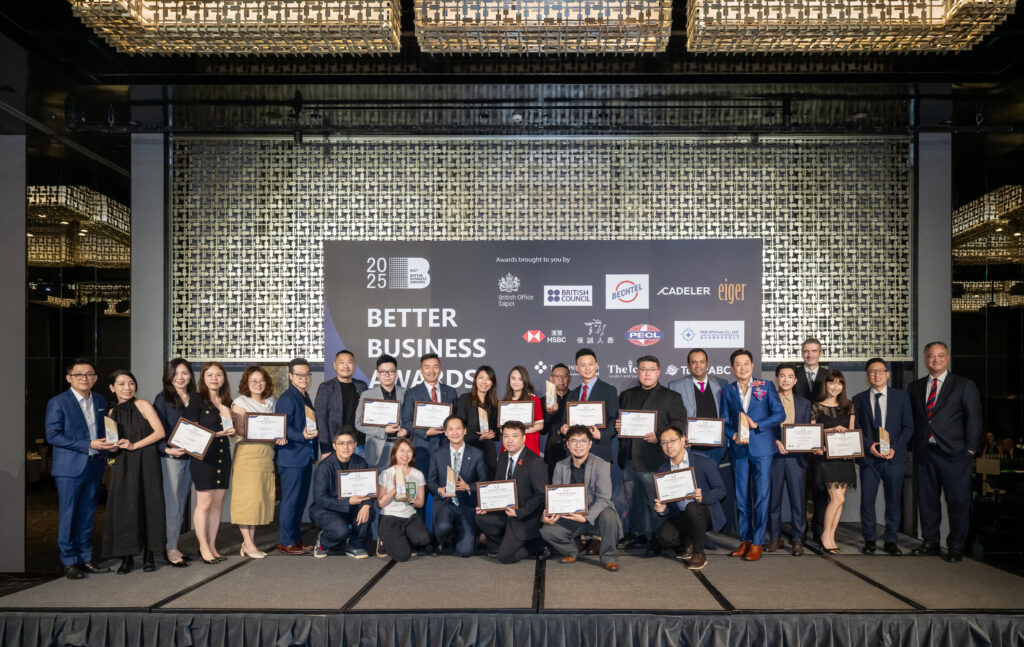
The Essence of Leadership Lies in the Ability to Redefine the Market
In many people’s minds, leadership is often associated with titles, seniority or corporate scale. Yet this year’s Business Leader of the Year Award has completely redefined that perception. The finalists came from a wide range of sectors including technology, manufacturing, international brands and professional services. Each had a distinct style, yet they shared a common quality: the ability to see further, integrate faster and drive transformation at critical moments, guiding their organisations to find new positions amid market shifts.
The winner of this year’s award, Saxon Chen, founder of H2U Corporation, represents this new kind of leadership. Rather than emerging from the traditional medical system, he entered the health industry through the lens of data and digital platforms, redefining how health is understood and managed. Under his direction, the team has built a scalable ecosystem that integrates health content, activity tracking, insurance partnerships and medical resources, transforming healthcare from something confined to hospitals into a part of everyday life, the workplace and the community.
The growth of H2U Corporation was not a matter of waiting for opportunities but of creating them. The company evolved from B2C services to corporate wellness management and later collaborated with the insurance sector, turning health from a cost into a strategic asset that enterprises are willing to invest in and individuals are motivated to participate in. This approach goes beyond business model innovation; it represents a reorganisation of the entire industry.
As Vicki Wu, Executive Director of the British Chamber of Commerce in Taipei, noted:
“H2U Corporation is not adjusting within an existing framework; it has built a new path that compels the market to change. True leadership is not about waiting for the environment to mature, but about creating it first.”
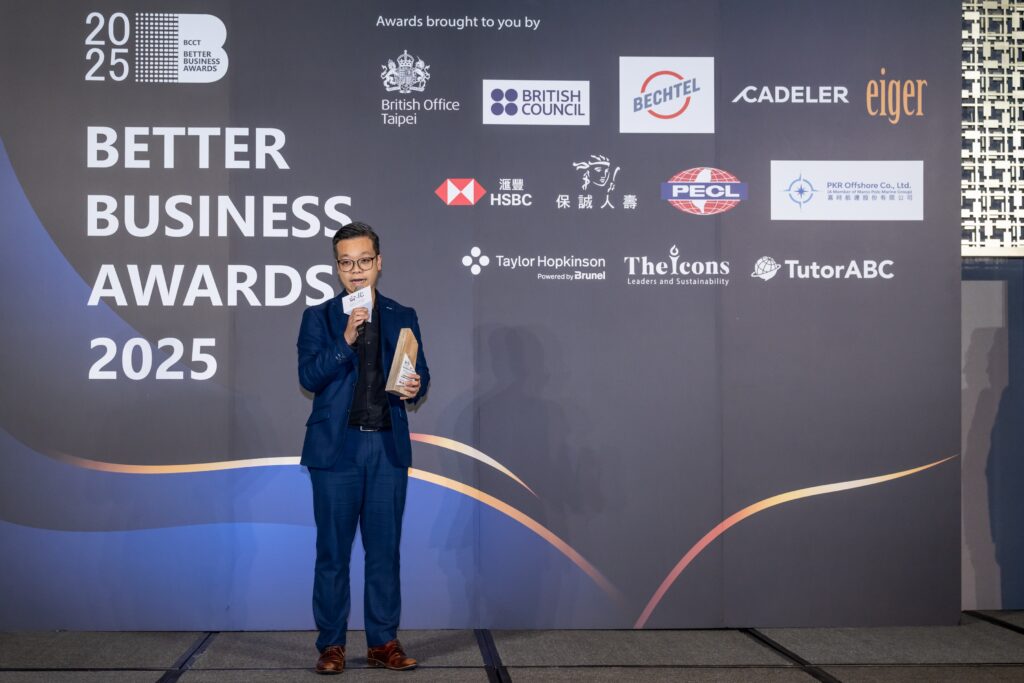
The finalists also demonstrated diverse expressions of leadership. Under the direction of Rahil Ansari, President of Volkswagen Group Taiwan and Audi Taiwan, the company has embraced a comprehensive transformation amid the rapid evolution of the automotive industry. It is no longer merely a car manufacturer, but a pioneer reshaping the electric vehicle market through intelligent mobility and sustainability strategies, bringing global foresight and responsibility to Taiwan.
Dr. Chris Huang, founder of JU-TIAN Cleantech Co., Ltd., began with scientific research and transformed agricultural waste into high-value, internationally recognised biomaterials. This achievement represents not only a technological breakthrough but also a testament to how small and medium-sized enterprises can amplify their influence through innovation, propelling Taiwan’s sustainable technologies into the global supply chain.
Though these leaders come from vastly different backgrounds, they share a clear and powerful commonality: the ability to identify trends, take bold action and lead their teams toward the future. As one key insight from this year’s awards reminds us, the essence of leadership does not lie in how many resources you command, but in your ability to move others forward and be ready before change arrives.
Sustainability Is No Longer a Slogan on the Wall but a Core Part of Business Decision-Making
If the Leadership Award highlights those capable of leading their companies into the future, the sustainability awards reflect whether businesses possess the resilience to sustain that future. This year’s Climate Champion Award and Green Energy Award showcased, from different perspectives, how enterprises are addressing environmental change, policy pressures and the global energy transition, embedding sustainability into their core business logic rather than leaving it as a slogan or a line in a report.
The winner of the Climate Champion Award, Heng Leong Hang Co., Ltd., has broken the common perception that distributors can only follow the direction of the brands they represent. Starting from product selection, the company set durability and environmental responsibility as essential criteria to prevent products from becoming short-lived or disposable. It also established a recycling, testing and refurbishment system that enables household appliances to re-enter the market, creating a genuine circular economy.
“Many people regard sustainability as a cost, but Heng Leong Hang has turned it into efficiency,” said Vicki Wu. “The key is not whether sustainability can be profitable, but whether you can use it to reshape your relationship with the market and turn it into genuine value.”
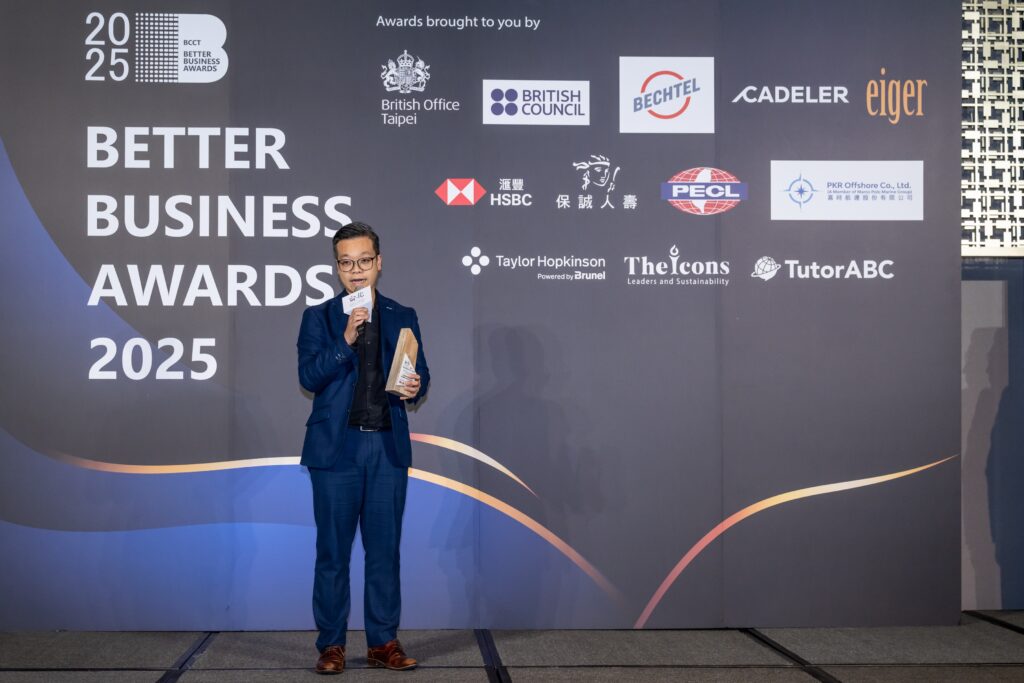
This year’s finalists for the Climate Champion Award have made the meaning of sustainability even more tangible. Poseidon Global Industries has taken ocean resources as its starting point, building a blue economy model through technology monitoring, ecological restoration and policy collaboration. Its approach not only addresses environmental challenges but also creates new industrial opportunities. Duo Li Duo Foods Corporation has integrated carbon reduction, energy efficiency and supply chain transparency into its daily operations, demonstrating that food brands can also place ESG at the heart of their strategy to enhance both competitiveness and trust. As one judge remarked, sustainability may not follow a single path, but it must be embedded within a company’s internal systems.
The winner of the Green Energy Award, J&V Energy Technology, plays a pivotal role in Taiwan’s energy transition. Rather than merely developing power plants, it acts as an “integrator,” linking together policy, land, technology, capital and corporate demand to form a complete supply chain. Through this model, J&V Energy Technology has made green electricity truly accessible, manageable and scalable.
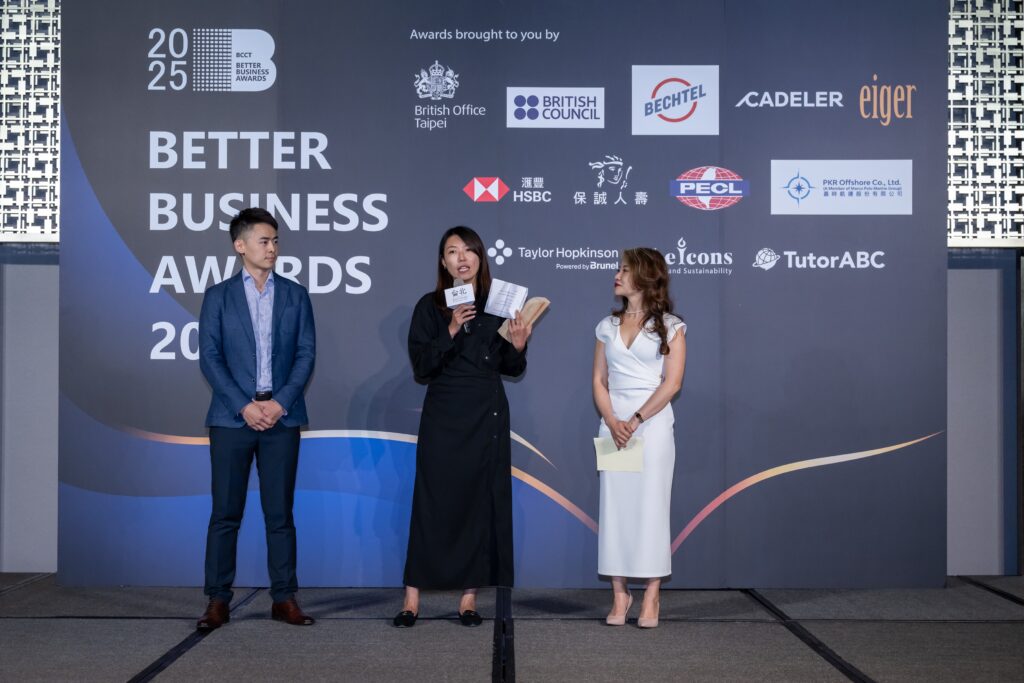
The finalists for the Green Energy Award have further strengthened the integrity of Taiwan’s renewable energy value chain. JUMBO Consulting Group focuses on project development processes, regulatory compliance and technical coordination to ensure that offshore wind projects can be effectively implemented. Vena Energy Taiwan brings large-scale power plant construction and world-class operational expertise, demonstrating both the execution capability and industrial depth of Taiwan’s renewable energy sector.
As Vicki Wu, Executive Director of the British Chamber of Commerce in Taipei, remarked, “Real change is not about running a few environmental projects; it is about using sustainability to redefine how a company operates in every aspect.” She added that sustainability is no longer a slogan on the wall, it has entered strategic meetings, budget planning, product design and brand identity. When companies begin to view sustainability through a long-term lens, it ceases to be a burden and becomes a source of competitiveness.
When Health, Society, and Education Become the New Battlegrounds for Business
As sustainability becomes a baseline expectation for businesses, three awards this year highlight a deeper transformation: companies are rethinking the role of people. Here, “people” are not viewed merely as market targets but as the foundation of genuine needs in health, care, education and social connection. The Innovation for Wellbeing Award, Social Enterprise Award and UK Alumni Association of the Year (ESG & UK Education Impact Award) may belong to different fields, yet they all point to one shared idea: true influence is returning to the heart of humanity and society.
The Innovation for Wellbeing Award this year was presented to Medtronic Taiwan Ltd. As a global leader in medical technology, Medtronic has gone beyond selling medical devices in Taiwan by reimagining how healthcare services should be delivered. Through smart devices, remote care and data analytics, Medtronic has extended healthcare beyond hospital walls into homes, communities and workplaces, improving efficiency while easing the burden on the medical system.
According to Vicki Wu, Executive Director of the British Chamber of Commerce in Taipei, “Medtronic’s true value does not lie only in how advanced its technology is, but in how it brings technology back to where it matters most, improving people’s lives.”
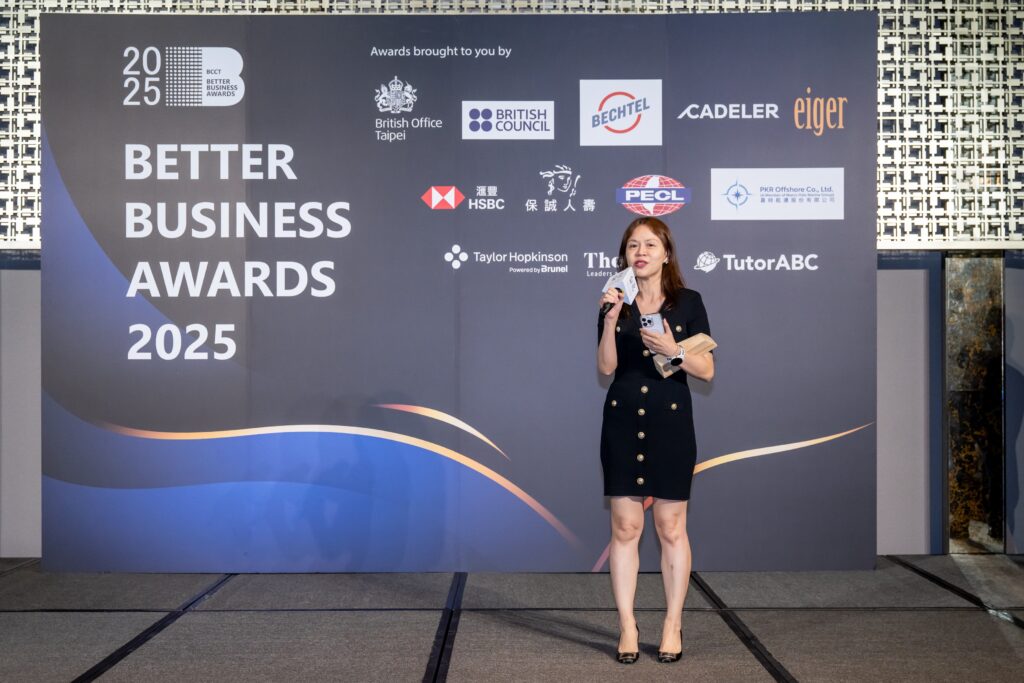
The finalists also showcased the expanding cross-sector power of the health industry. Far EasTone Telecommunications applied its communication and cloud technologies to build a smart health platform, proving that telecommunications can also play a vital role within the healthcare system. KEI SEI KEN Biotechnology focused on precision health products and data applications, making health management more personalised and proactive. These examples illustrate that health is no longer an issue confined to the medical industry but part of an ever-expanding, cross-sector value chain.
The winner of the Social Enterprise Award, buydirectlyfromfarmers, embodies the idea that solving problems can itself be a business model. Rather than simply selling agricultural products, the company has rebuilt the entire agricultural supply chain—ensuring fair income for small farmers, promoting sustainable land use, and helping consumers understand where their food comes from. Through thoughtful platform design and transparent mechanisms, it has turned fairness into a scalable and value-generating business principle.
“The power of a social enterprise does not lie in emotional appeal, but in building a system that can operate sustainably,” said Vicki Wu, Executive Director of the British Chamber of Commerce in Taipei. “The maturity of a social enterprise is measured by its ability to function independently, continue expanding, and bring real structural change.”
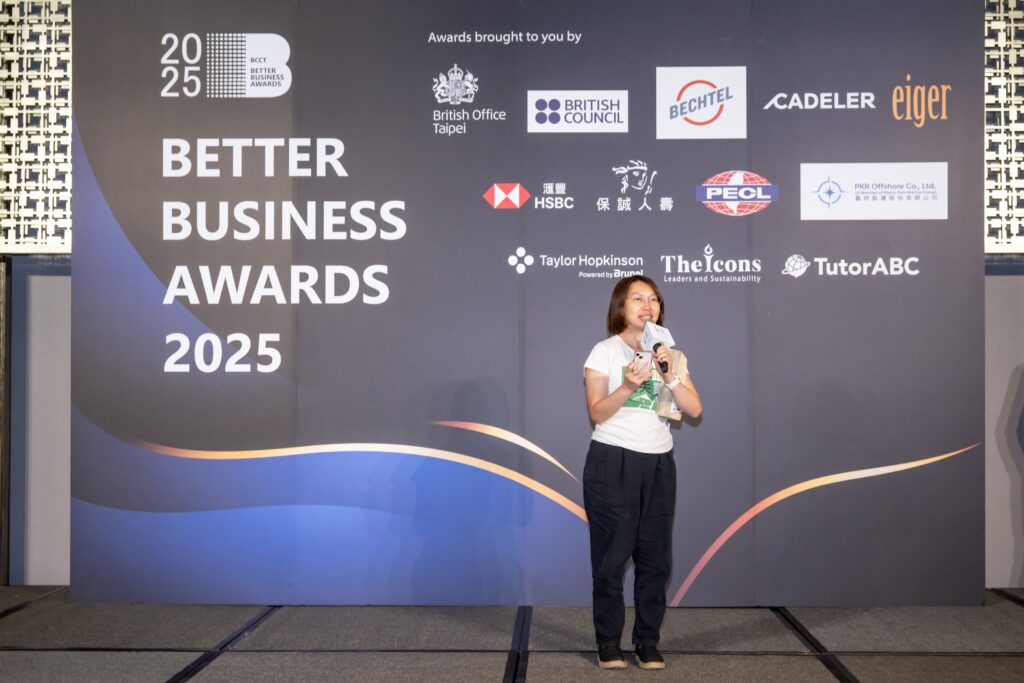
The finalists also demonstrated remarkable depth in their social impact. Watersource Cultural and Educational Foundation has long dedicated itself to addressing educational inequality in rural areas by cultivating local teachers and developing long-term mentorship models. igoodPoint Creative Co., Ltd. has built social connections through food, dining experiences and community design, turning culture from something to be preserved into something that can be actively participated in. These examples show that social value and business capability are increasingly becoming one and the same.
The winner of the UK Alumni Association of the Year Award, the Cambridge University Taiwan Alumni Association, has transformed alumni connections into a platform for knowledge exchange and cross-sector collaboration, showcasing the enduring influence of education in society. “The essence of education is not knowledge itself, but the cultivation of capability and vision,” said Vicki Wu, Executive Director of the British Chamber of Commerce in Taipei. She noted that the Cambridge University Taiwan Alumni Association goes beyond organising alumni activities, it has built a platform that nurtures talent and fosters meaningful collaboration across disciplines.

In addition, the University of Nottingham Alumni Association in Taiwan and the London School of Economics Alumni Association Taiwan also demonstrated exceptional capacity for connection and collaboration. Some have partnered with industry to develop joint projects, while others have established international forums that foster dialogue and exchange. These efforts show that alumni associations are no longer just social gatherings, but dynamic platforms for resource flow and collective knowledge creation.
Sustainability and Culture Determine How Far a Business Can Go
Two additional awards this year reveal how the very definition of corporate vision is being reshaped. The Sustainability Award examines the depth of a company’s governance and internal strength, while the Spirit of Scotland Award explores the cultural dimension and historical perspective of a brand. These awards are not about performance metrics, but about whether a company can build a value system that endures over time.
The winner of the Sustainability Award, Poseidon Global Industries, offers a defining example. Rather than focusing on a single product or project, the company embedded the concept of the ocean as a shared, governable and economically valuable resource into the very foundation of its business model. By developing ocean monitoring technologies, collaborating with the fishing industry and participating in policy formation, Poseidon has made environmental stewardship an integral part of the industrial chain. In doing so, it has not only addressed environmental challenges but also opened new market opportunities.
As Vicki Wu, Executive Director of the British Chamber of Commerce in Taipei, observed, “What is most remarkable about Poseidon is that it does not add sustainability to its business; it defines its business through sustainability.”
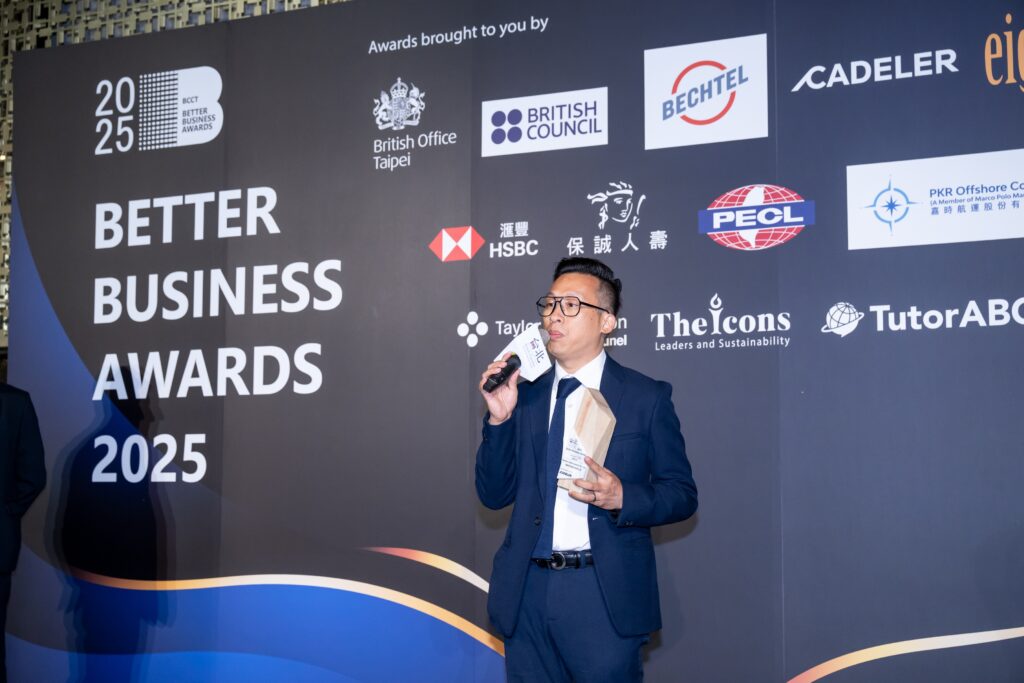
The finalists demonstrated the same depth of commitment, each realising sustainability in different ways. Leofoo Tourism Group has integrated sustainability into hotel operations, travel experiences and ecological education, transforming tourism from simple consumption into an act of understanding and participation. Onyx Ta-Ho Environmental Services has elevated waste management into resource regeneration, establishing a comprehensive circular system that turns waste reduction into value creation. Together, these companies prove that sustainability is no longer a side project but the foundation determining how far a business can go.
If the Sustainability Award recognises how companies build their own internal systems, the Spirit of Scotland – ESG & Sustainable Excellence The Grand Cask Award winner, Pernod Ricard Taiwan, brings the discussion to a higher level—whether a brand can become a culture. Pernod Ricard Taiwan has never positioned itself merely as a spirits company but as a cultural curator. It promotes whisky education, creates immersive experience spaces and preserves the craftsmanship of distillation. More importantly, it embeds sustainable distilling and terroir protection into the brand’s core identity.
For Pernod Ricard, a product is not just a commodity but a story, an attitude and a set of values. As Vicki Wu, Executive Director of the British Chamber of Commerce in Taipei, observed, “Pernod Ricard’s true strength lies in its ability to transform a brand into a culture, rather than simply a marketing effort.”
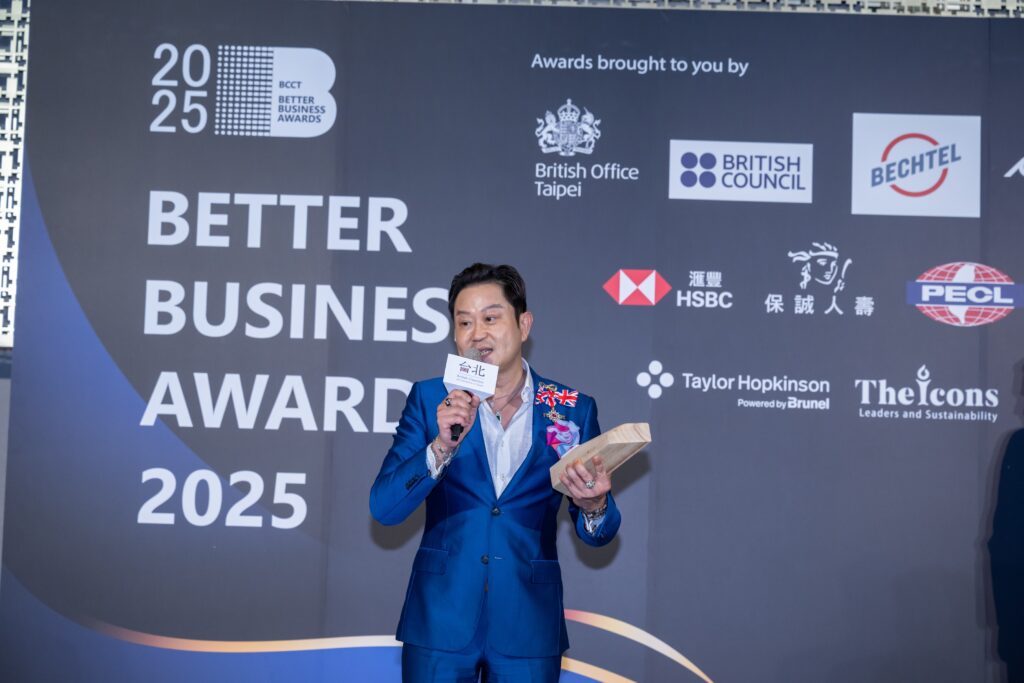
Long Life Trading received the Spirit of Scotland – ESG & Sustainable Excellence The Independent House Award from the British Chamber of Commerce in Taipei. Though smaller in scale, the company demonstrated exceptional focus and depth in brand building. It insists on high-quality product selection, maintains a transparent supply chain, and invests in sustainable packaging and local cultural promotion. Rather than pursuing rapid expansion, Long Life Trading is committed to upholding high standards.
As Vicki Wu, Executive Director of the British Chamber of Commerce in Taipei, noted, “It is easy for a brand to grow, but earning respect is far more difficult.” Long Life Trading proves that small enterprises can also hold a clear position and achieve recognition in the international market. “The true height of a brand,” she added, “comes not from its size but from its choices.”
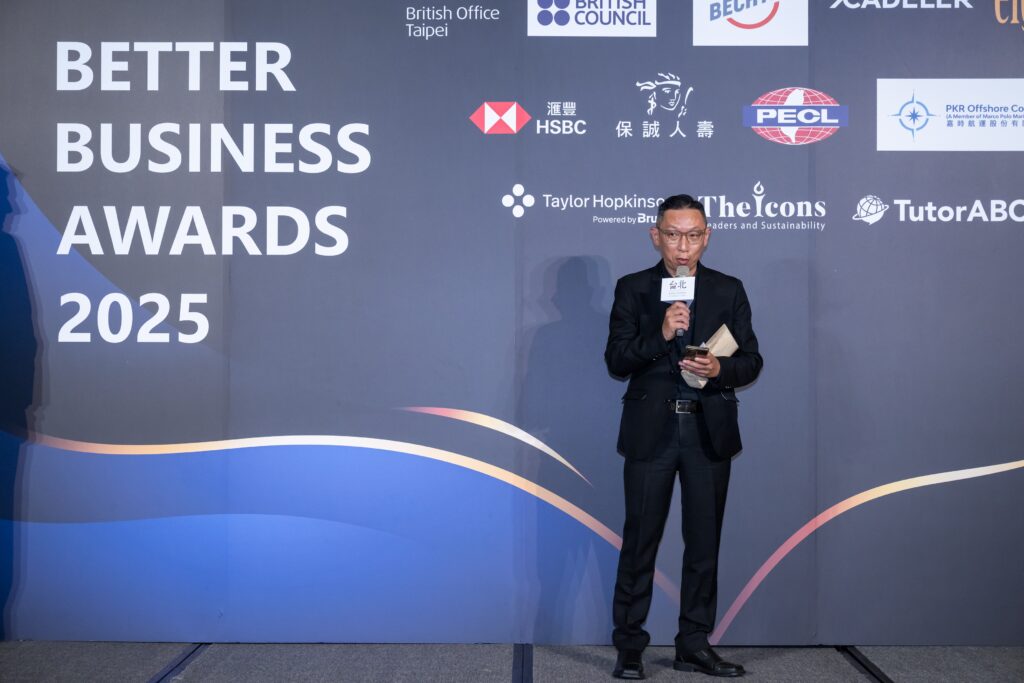
According to Vicki Wu, these two awards are not about comparing industries but about exploring a single, deeper question: whether a company possesses the vision and depth to build a system that influences others and leaves a lasting mark of its own civilisation. When sustainability becomes part of corporate governance and a brand carries both culture and responsibility, a business transcends commerce and becomes part of shaping its era. “In the end,” she said, “what truly endures is not the product itself, but the way a company is remembered by the world.”
Shaping the Next Decade of Business
The eight awards presented at this year’s Better Business Awards form a steadily emerging blueprint for the decade ahead, outlining the future direction of business. The Business Leader of the Year Award highlights that leadership is no longer just about managing organisations but about seeing further, acting faster and guiding entire industries forward. The Climate Champion and Green Energy Awards reveal that companies are not merely responding to policy but are proactively building sustainable competitiveness, turning environmental challenges into market opportunities.
“You will find that these companies are not waiting for the rules to be written—they are helping to write them,” said Vicki Wu. As the Innovation for Wellbeing Award, Social Enterprise Award and UK Alumni Association of the Year were announced, another trend became clear: business is moving beyond the provision of products or services to a deeper understanding of problems and redesigning how social systems function. Companies are no longer just entering markets; they are engaging with daily life, making value tangible. “To me, the most powerful companies are those that face real problems head-on and use business as a means to solve them.”
When we turn to the Sustainability Award and the Spirit of Scotland Awards, a more profound question arises: what will companies ultimately leave behind? These names are remembered not just for their success but for transforming sustainability into conviction, brand into culture and influence into legacy. These cases prove that those who endure the longest are not necessarily the largest, but those with the deepest sense of purpose.
“Winning is momentary, but becoming a benchmark lasts a lifetime,” said Vicki Wu. She believes the value of the Better Business Awards lies not in presenting trophies but in asking a more meaningful question: what should the good companies of the future look like? The Awards are not an endpoint but an ongoing commitment, a driving force and a shared direction. As more companies choose this path, Taiwan will not only participate in the global market but also help define global value.
“For me, the point of recognition is not just about winning. It is about whether a company is willing to be seen, questioned and expected of. The true value of the Better Business Awards is that it gives companies the courage to show where they stand. The businesses most worth remembering are not necessarily the biggest but those with conviction, responsibility and the willingness to lead others forward. That kind of strength is what shapes the future.”
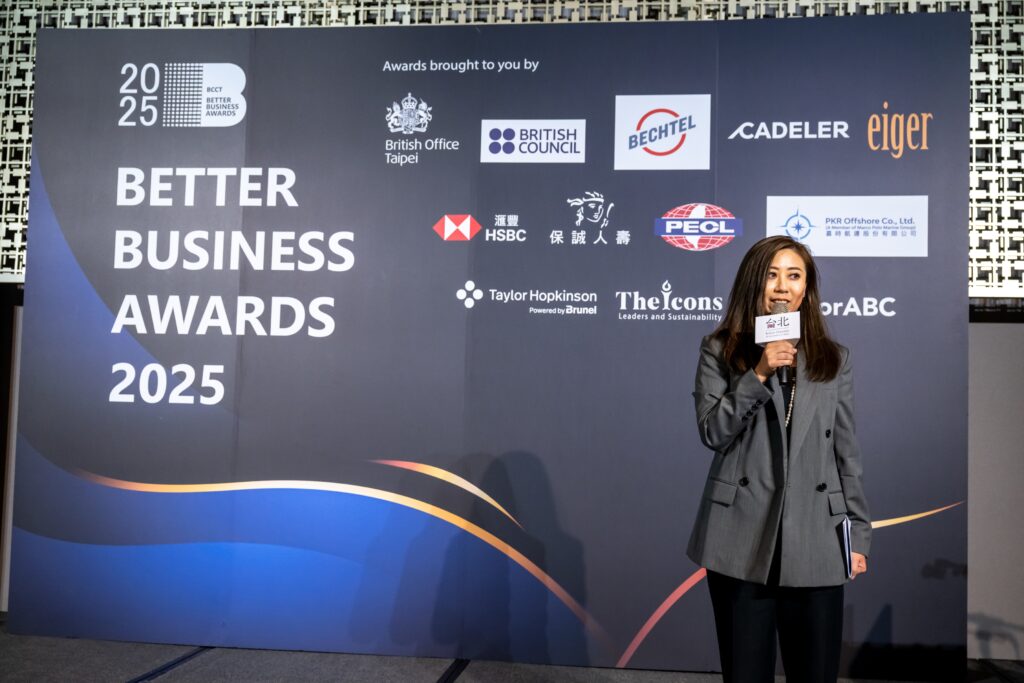
Recommend for you: